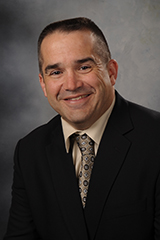March 5, 2019
“What Do I Do If…?”

We have all been there. We believe that a coworker is taking liberties regarding workload, work quality, tradition, policy or law. The question is, what do we do about it?
When I am called by a concerned employee, I often have mixed emotions. First, I am very pleased that the individual is comfortable and confident enough to call me with their concern. I know making that call was not easy.
Sometimes the person just wants coaching. That is okay. We all need advice from time to time. It is appropriate to call me or whomever in our organization whenever you need coaching in how to deal with an issue. In these instances, I will try to quickly understand whether the issue is a local unit or system wide policy or legal issue. If the issue is a local unit policy, one that does not conflict with a system wide policy or law, I may only be able to give general advice rather than solve the issue.
The calls that are more troubling is when the person wants quick executive action. They want me to tell the other person that they are wrong. In many cases, the complainant often responds with a “No…” when asked the following questions:
• Did you…
o …talk to the colleague about it?
o …talk to your local unit director (department chair or center director) about it?
o …talk to your board chair and regional director about it?
“Wait a minute! You expect me to talk to the colleague I have an issue with.” If the issue is rather minor and if you expect an appropriate level of response back from your colleague, yes. We have been emphasizing teams and teambuilding the past eighteen months. If you examine team literature, one of the hallmarks of highly effective teams is to be accountable to one another and to effectively communicate with each other. If you believe that this conversation can be addressed by both you and your colleague in a professional manner, you should have the conversation before taking it to someone with more authority.
If that conversation is not productive or if you fear reprisal, then you should follow the organizational protocol by talking to your local unit director. If that is unproductive or if the local unit director is the colleague you are concerned about, you should bring the matter to the attention of your board chair and/or regional director. If you are still dissatisfied with the solution or one cannot be found, then press the matter forward to your associate directors. If the issue still cannot be resolved, then I can be brought in to offer what assistance I can.
I want to make this clear. I am interested and concerned about the issues and problems you face. Nevertheless, I believe that following such a process has numerous advantages. First, it is the professional and collegial way. Second, the best solutions to problems often arise from discussions between those who are closer to the issue at hand. Thus, a solution arising from a discussion between two agents, a local unit director, and a regional director may be more realistic than a discussion between an agent and myself. Finally, following this process naturally assures that the number of people appropriately involved in the solution matches the seriousness of the issue.
Thanks for reading the Tuesday Letter, and, as always, thanks for what you have done, are doing, and all that you will do for Kansas and K-State Research and Extension.